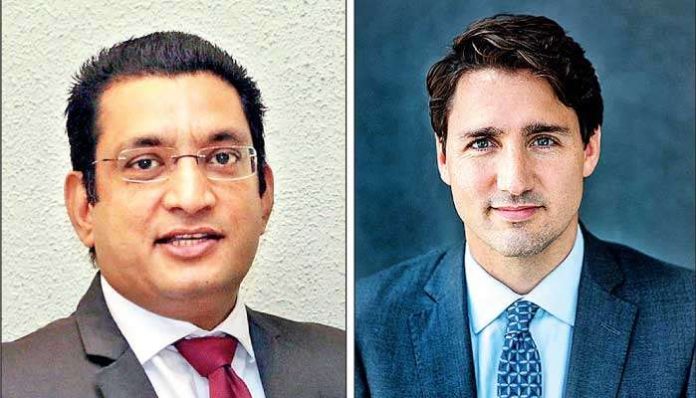In a recent statement, the Foreign Affairs Ministry of Sri Lanka unequivocally dismissed the assertions made by Canadian Prime Minister Justin Trudeau regarding alleged genocide in Sri Lanka. The Sri Lankan government has consistently refuted such claims, emphasizing the lack of objective evidence and competent authority to support such serious accusations.
The genesis of these allegations stems from the conclusion of a prolonged armed conflict with the LTTE (Liberation Tigers of Tamil Eelam), a designated terrorist organization in numerous countries, including Canada. The Sri Lankan government has maintained that the conflict was a response to LTTE’s pursuit of separatism, which violated the principles of the UN Charter.
Prime Minister Trudeau’s endorsement of the genocide narrative not only lacks factual basis but also risks undermining communal harmony among Canadians of Sri Lankan descent, a community that has played a constructive role in engaging with Sri Lanka. It’s essential to recognize that all ethnic groups in Sri Lanka, including Sinhalese, Tamils, Moors, Malays, and Burghers, were affected by the conflict, with Tamil civilians disproportionately bearing the brunt of LTTE’s repression.
Moreover, Sri Lanka criticizes Canada’s disproportionate focus on its internal affairs, alleging double standards in addressing humanitarian crises globally. While Canada claims to champion human rights, its selective attention to Sri Lanka’s past conflicts neglects pressing humanitarian issues elsewhere. This inconsistency fuels polarization and undermines the credibility of Canada’s advocacy for global human rights.
The Sri Lankan government vehemently rejects the characterization of its history as “irresponsible disinformation,” emphasizing its commitment to peace, reconciliation, and progress. Throughout the conflict, Sri Lanka asserts it provided humanitarian aid to affected areas, facilitated by collaboration with international organizations such as the ICRC (International Committee of the Red Cross) and UN agencies.
Furthermore, Sri Lanka highlights its post-conflict efforts towards reconciliation and development, despite economic challenges. The government remains steadfast in its commitment to fostering national unity and achieving lasting peace and security.
In conclusion, Sri Lanka’s response to Prime Minister Trudeau’s allegations underscores the importance of evidence-based discourse and constructive engagement in addressing complex historical conflicts. It urges the international community, including Canada, to approach Sri Lanka’s past with nuance and respect for its ongoing efforts towards reconciliation and progress.


